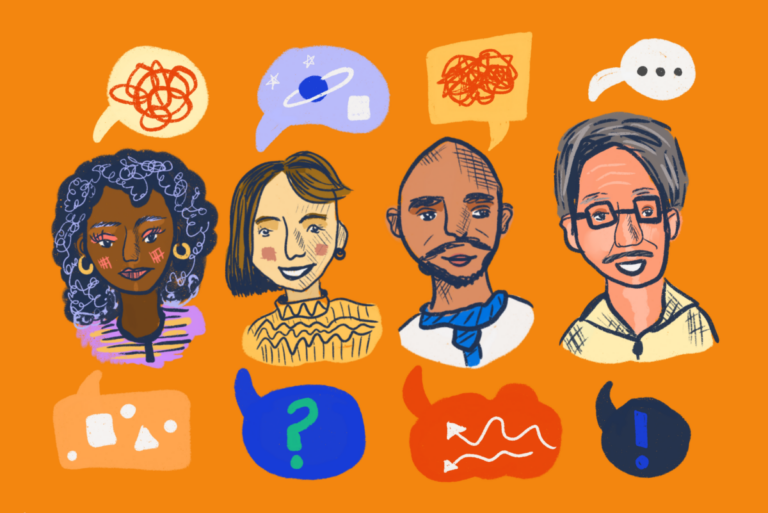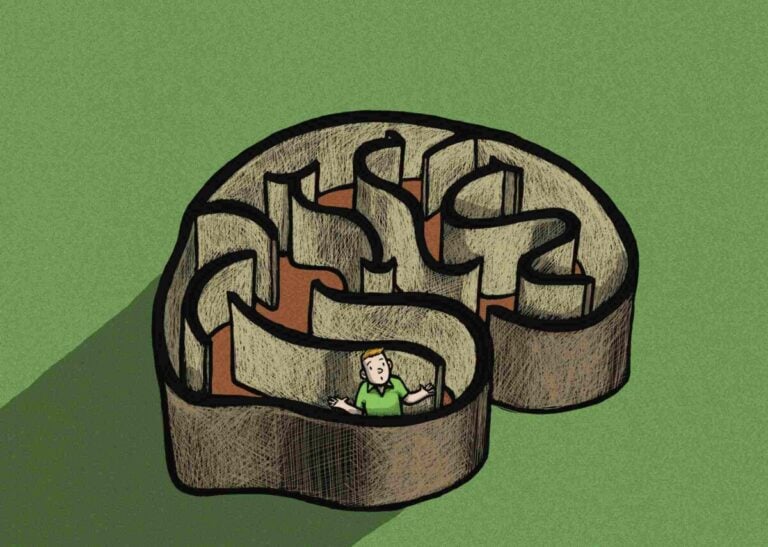“Let us not forget that small emotions are the great commanders of our lives, and we obey them without even realizing it,” said Vincent Van Gogh, and these words very accurately reflect the role of feelings in the life of every person. They are the ones who cause our reactions to this or that event and shape our behavior.
There are many myths and misconceptions around human experiences: that they are elements, that they need to be “kept in check,” that there are “positive” and “negative” emotional impulses. In fact, emotions are a powerful mechanism designed by nature so that we can live comfortably in this world. By learning to use it, you can make your reality happy and prosperous.
What are emotions and why are they needed?

In the process of evolution, emotions developed, became more complex, and transformed into other feelings. In modern man they perform many functions:
- Evaluation. What we feel allows us to formulate our attitude towards the situation and choose the appropriate behavior model.
- Activation. If necessary, emotions bring us into good shape, help us quickly make decisions and act.
- Shaping behavior. By analyzing past events, we build cause-and-effect relationships that influence our reactions. For example, the fear experienced is associated with the situation that became its cause. In the future, this allows you to avoid actions that could lead to a repetition of the negative experience.
- Motivation. Our experiences push us to take actions that can change the situation for the better or avoid trouble.
- Communication. Expressing emotions allows us to build communication with other people, convey to them information about our well-being, needs, attitude.
According to their impact on a person, emotions can be divided into sthenic – tonic, inspiring, encouraging active activity, and asthenic – relaxing, forcing you to stop, freeze, wait out danger or analyze circumstances.
Distinguished professor of psychology at Northeastern University in the United States, Lisa Barrett, in her book “How Emotions Are Born,” says that the feelings caused by the same event can differ among people with different values and outlooks on life. They are a complex combination of genetics, the physical properties of the body, the plasticity of the brain, the environment in which a person finds himself, his culture and upbringing.
What can suppressing emotions lead to?
Suppression of emotions can be either conscious or automatic. This is a process that allows you to control their external manifestation to a certain extent. From the point of view of interaction with society, this may seem not only acceptable, but also desirable, but an attempt to completely refuse to express one’s feelings would turn humanity into a group of biorobots. This point is well illustrated in the American dystopian film Equilibrium, which tells the story of a world where emotions are officially prohibited. People are forced to suppress them with a special drug, and those who disagree face persecution and execution. Such a life does not lead to well-being, because it is feelings that can inspire creativity and give a feeling of satisfaction, fullness and joy in life.
For the body, emotion is a factor that triggers the action of certain hormones. Oxytocin and serotonin are responsible for happiness and good mood, adrenaline and cortisol are responsible for anger and aggression. The synthesis of hormones leads to changes in the physiological state of a person. For example, under the influence of adrenaline, the pupils dilate, breathing and heartbeat quicken – the body accumulates energy for active actions.

“Unlived”, that is, unexpressed emotions do not allow energy to be realized. This can lead to various negative consequences. For example, a person can “break loose” and start a scandal or fight. Those who suppress their feelings too much may experience psychological problems: burnout, depression and others. In some cases, emotions driven too deeply harm a person’s health and well-being and provoke serious diseases: autoimmune disorders, diseases of the gastrointestinal tract, heart and blood vessels, skin, and even oncology.
How to properly manage your emotions?
Of course, the fact that suppressing emotions has a detrimental effect on a person does not mean that they need to be expressed spontaneously, uncontrollably, without caring about the consequences. To be able to experience emotions well, it is important to develop emotional intelligence. For the first time, the American psychologist and teacher Edward Lee Thorndike spoke about this concept, noting that managing one’s experiences and their manifestations is a skill that can be developed.
Emotional intelligence is the ability to understand your own feelings and the feelings of other people, identify the needs that lie behind them, and use this knowledge in order to control your thinking and actions. Work on the development of emotional intelligence includes studying yourself as a person, the factors and values that shaped your worldview, identifying your “pain points” that cause a strong reaction, and their deep study.
Self-help techniques
In situations where a smile does not help, you can try to restore peace of mind using one of the techniques:
- Letting go. You need to take any suitable object in your hand and squeeze it as tightly as possible. Imagine your negative experience and mentally move it from yourself to this object. Next, you need to sharply unclench your fingers and correlate the release of the object with the release of your problem state.
- Long exhalation. Breathing is carried out in a normal rhythm, and the exhalation should be twice as long as the inhalation. At the same time, you can imagine how stress, anxiety or fear comes out with the exhaled air.
- Automatic writing. In a moment of mental crisis, you can take a pen and paper and write down absolutely all the thoughts that come to your mind. After thoughts have been “unloaded,” the paper must be destroyed without rereading what was written. This will help get rid of negative feelings.
These techniques allow you to safely experience your emotions, realize the energy concentrated in them, regain calm and the ability to communicate and act calmly.
Psychiatrist Vladimir Levi, author of the book “The Art of Being Yourself,” said that the best way to understand and get to know yourself is to interact with others as often as possible. By communicating with people, observing their reaction to our behavior and our reaction to the manifestations of others, asking ourselves questions and finding answers, we receive the keys to understanding our own soul, its impulses and needs.












Amazing article Thank you very much